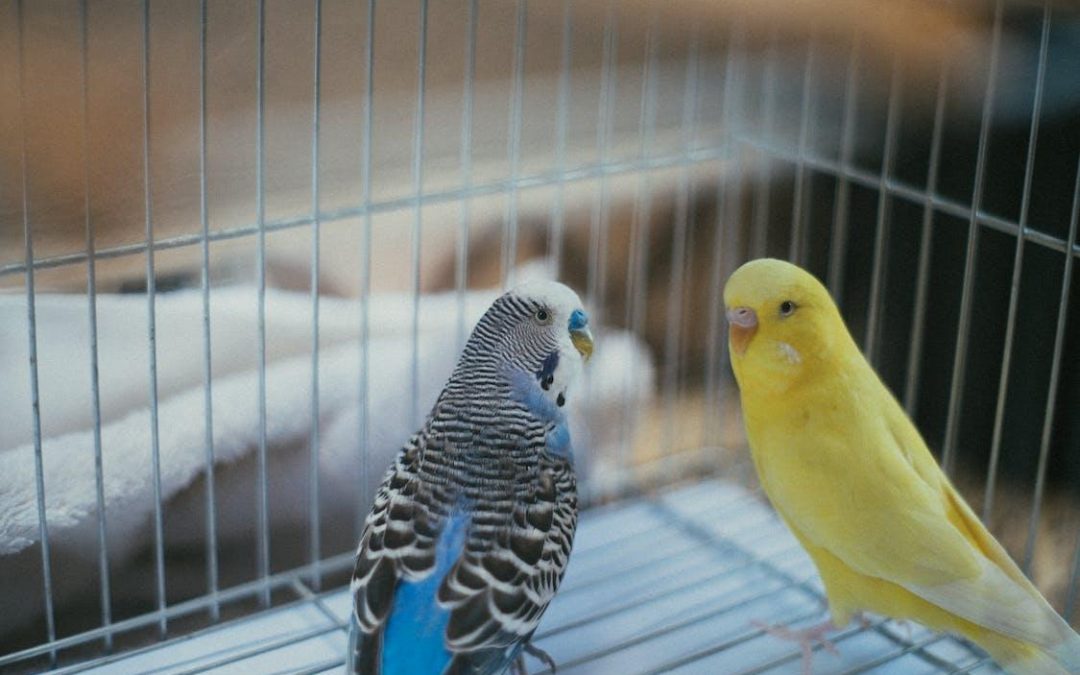If you’ve been charmed by the delightful world of pet birds, you’re in for an adventure unlike any other. From the cheerful melodies of canaries to the vibrant personalities of parrots, avian companions bring joy and companionship to our lives. However, like all pets, birds require special care and attention to ensure they lead happy, healthy lives. Read on to learn essential pet care tips every bird lover should know.
1. Create a Comfortable Habitat
Your feathered friend’s home is their sanctuary, so make it as comfortable and engaging as possible. Choose a spacious cage that accommodates their wingspan and provides room for natural movement. Line the bottom with safe and absorbent bedding, and ensure there’s enough space for perches, toys, and food and water dishes. Place the cage in a quiet, draft-free area away from direct sunlight and temperature extremes.
2. A Nutritious Diet Is Key
A well-balanced diet is the foundation of avian health. Research your bird’s dietary needs based on its species, size, and age. High-quality pellets, fresh fruits, and vegetables should form the core of their diet. Supplement with occasional seeds and nuts for added variety. Remember to remove uneaten fresh food promptly to maintain cleanliness.
3. Social Interaction and Mental Stimulation
Birds are highly intelligent and social creatures that thrive on interaction. Dedicate time each day to engage with your bird through talking, singing, and gentle handling. Rotate toys regularly to prevent boredom. Toys that encourage exploration, problem-solving, and foraging are particularly beneficial. Birds love shiny objects, bells, puzzles, and items they can shred.
4. Regular Veterinary Care
Avian health requires proactive care, including regular visits to an avian veterinarian. Annual wellness exams can help detect health issues early. Look out for signs of illness, such as changes in behavior, weight loss, changes in droppings, or abnormal feather appearance. Consult your vet for advice on parasite prevention, vaccination, and appropriate diet for your bird’s specific needs.
5. Safety First
Bird-proofing your home is essential to prevent accidents. Remove or secure items that could be toxic or dangerous if ingested. Keep windows and doors closed when your bird is out of the cage, and ensure there are no potential hazards, such as exposed electrical cords or open flames. Supervise your bird during playtime and provide a safe play area.
6. Grooming and Hygiene
Regular grooming routines contribute to your bird’s comfort and health. Trim overgrown nails and beaks as needed, and offer opportunities for bathing or misting to keep feathers clean. Check for any signs of feather plucking or abnormal molting, which could indicate stress or health issues.
7. Sleep and Routine
A consistent routine is important for the well-being of your bird. Adequate sleep is vital, so ensure your bird has a quiet, dark, and comfortable sleeping area. Maintain a regular schedule for feeding, playtime, and rest to help your bird feel secure and reduce stress.
8. Proper Handling Techniques
Learning how to handle your bird properly is essential for both your bird’s well-being and your safety. Approach your bird calmly and use slow, gentle movements. Allow your bird to step onto your hand voluntarily and avoid grabbing or restraining it. Gradually build trust through positive interactions and treats.
9. Monitor Environmental Conditions
Temperature and humidity changes significantly impact birds. Keep the environment comfortable and ensure that your bird’s living area is well-ventilated. Avoid exposing your bird to drafts or sudden temperature fluctuations. If you use a heating or cooling system, make sure it doesn’t create uncomfortable conditions for your feathered friend.
10. Identify Signs of Stress
Understanding your bird’s body language can help you identify signs of stress or discomfort. If you notice your bird’s feathers are fluffed up, they’re not eating as much as usual, they’re making more noise than usual, or their behavior has changed, there may be something wrong. Address any issues and consult with an avian veterinarian if you notice prolonged changes in behavior.
11. Plan for Travel and Boarding
If you plan to travel or need to board your bird, make arrangements well in advance. Birds can be sensitive to changes in routine and environment, so choose a reputable avian boarding facility or pet sitter who is experienced with birds. Provide clear instructions for your bird’s care routine and ensure they have familiar items from home.
Belltown Pet Service: Expert Avian Sitting and Care Services
For professional avian sitting and care services, trust Belltown Pet Service. We understand the unique needs of birds and provide exceptional care to your feathered companions. From feeding and grooming to social interaction and playtime, we offer a comprehensive range of avian care services to ensure your birds lead happy, fulfilling lives.
When you have Belltown Pet Service taking care of your feathered friends, you can feel confident that they’re in good hands. Get in touch today to embark on an exciting journey of avian adventures filled with joy, health, and harmonious melodies!

